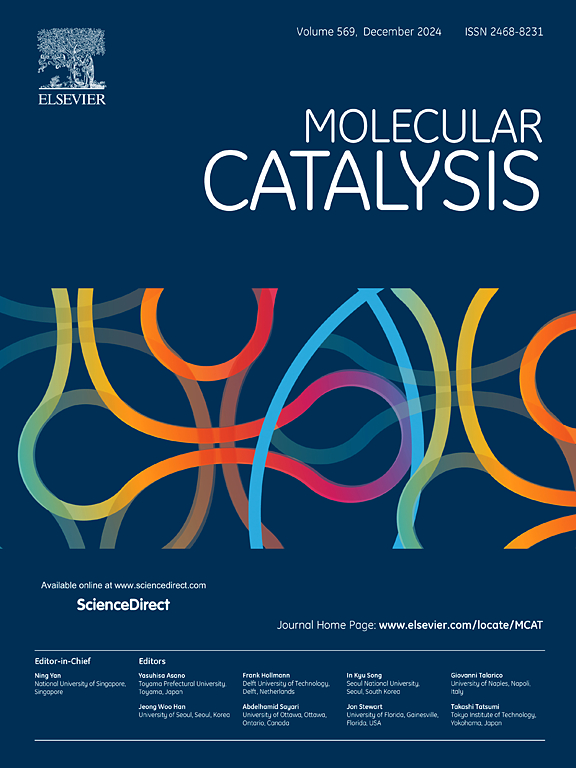Lean methane catalytic combustion using Pd/ZSM-5 catalysts prepared by ammonia evaporation method
IF 3.9
2区 化学
Q2 CHEMISTRY, PHYSICAL
引用次数: 0
Abstract
Catalytic combustion of lean methane is an effective measure to alleviate the greenhouse effect, which posing extensive demands for catalysts with appreciable reactivity and thermal stability. Herein, the reactivity and thermal stability of Pd/ZSM-5 catalysts prepared by ammonia evaporation and impregnation were tested. Experimental results indicated that the catalyst prepared by the ammonia evaporation method exhibited higher catalytic activity than that prepared by the impregnation method with similar Pd loadings. Especially, when the palladium loading is 0.1 %, the methane conversion of Pd/ZSM-5 prepared by AE method maintained at 80 % for 12 h at 550 °C while the methane conversion of Pd/ZSM-5 prepared by IM method decreased from 70 % to 20 % within 12 h at 550 °C. Through characterization, it was found that the elevated reactivity originated from the high dispersion of palladium due to the boosted interaction between palladium species and ZSM-5 support. These findings on the preparation of Pd catalysts via ammonia evaporation offer a practical reference for catalyst preparation environment adjustment, active species anchoring, and support-metal interactions, thus providing a promising blueprint for the design of future methane catalytic combustion materials.

求助全文
约1分钟内获得全文
求助全文
来源期刊

Molecular Catalysis
Chemical Engineering-Process Chemistry and Technology
CiteScore
6.90
自引率
10.90%
发文量
700
审稿时长
40 days
期刊介绍:
Molecular Catalysis publishes full papers that are original, rigorous, and scholarly contributions examining the molecular and atomic aspects of catalytic activation and reaction mechanisms. The fields covered are:
Heterogeneous catalysis including immobilized molecular catalysts
Homogeneous catalysis including organocatalysis, organometallic catalysis and biocatalysis
Photo- and electrochemistry
Theoretical aspects of catalysis analyzed by computational methods
 求助内容:
求助内容: 应助结果提醒方式:
应助结果提醒方式:


